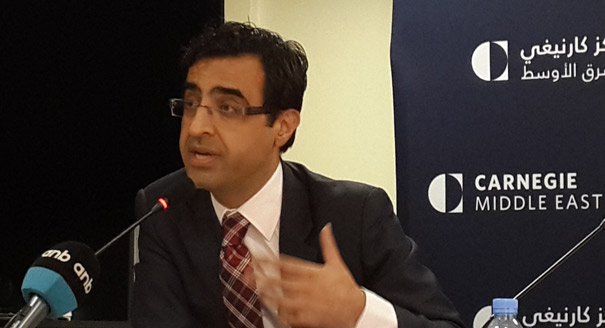Registration
You will receive an email confirming your registration.
As most of Iraq threatens to collapse under the weight of sectarian violence, Kurdistan in northern Iraq stands in sharp contrast. Often described as the “Other Iraq,” Kurdistan has enjoyed stability, security, and an economic boom during the last decade.
The Carnegie Middle East Center held a public event to shed light on the latest developments in Iraq. Carnegie’s Kawa Hassan, Maria Fantappie of the International Crisis Group, and Carnegie’s Lina Khatib discussed how the intricate dynamics between the Kurds, the Maliki government, and the Islamic State will shape a region in turmoil.
Discussion Highlights
- Iraq: A number of chronic problems have plagued the Iraqi state, Fantappie explained. Among these problems are Iraq’s status as a long-term rentier state, its personalized politics, the instrumentalization of its constitution, and its disconnected political leadership. These factors have put the Iraqi state at risk of serious disintegration, Fantappie added.
- Kurdistan: Kurdish independence may appear close, but much may still stand in the way, said Hassan. The Kurdish Regional Government faces several challenges which will make Kurdish independence a difficult, if not impossible, process. He explained that these include a lack of internal consensus, a remaining dependency on the central Iraqi government, a stratified and externally dependent economy, and a lack of international consensus. For now, calls for independence may be premature and there are more productive avenues forward, concluded Hassan.
- The Islamic State of Iraq and al-Sham: The Islamic State of Iraq and al-Sham (ISIS) and the rise of the “Islamic Caliphate” need to be taken seriously, but it should not necessarily be seen as a state, said Khatib. ISIS has become an incredibly powerful and dangerous organization almost overnight due to a variety of factors, such as its control of resources and finances, its size, its disciplined and strategic leadership, and its willingness to negotiate with relevant local actors. While true statehood remains a long way off, ISIS is indisputably the world's most dangerous terrorist organization, warned Khatib.
Maria Fantappie
Maria Fantappie is an analyst on Iraq with the International Crisis Group.
Kawa Hassan
Kawa Hassan is a visiting scholar at the Carnegie Middle East Center, where his research focuses on Kurdish and Iraqi politics.
Lina Khatib
Lina Khatib is director of the Carnegie Middle East Center in Beirut.
